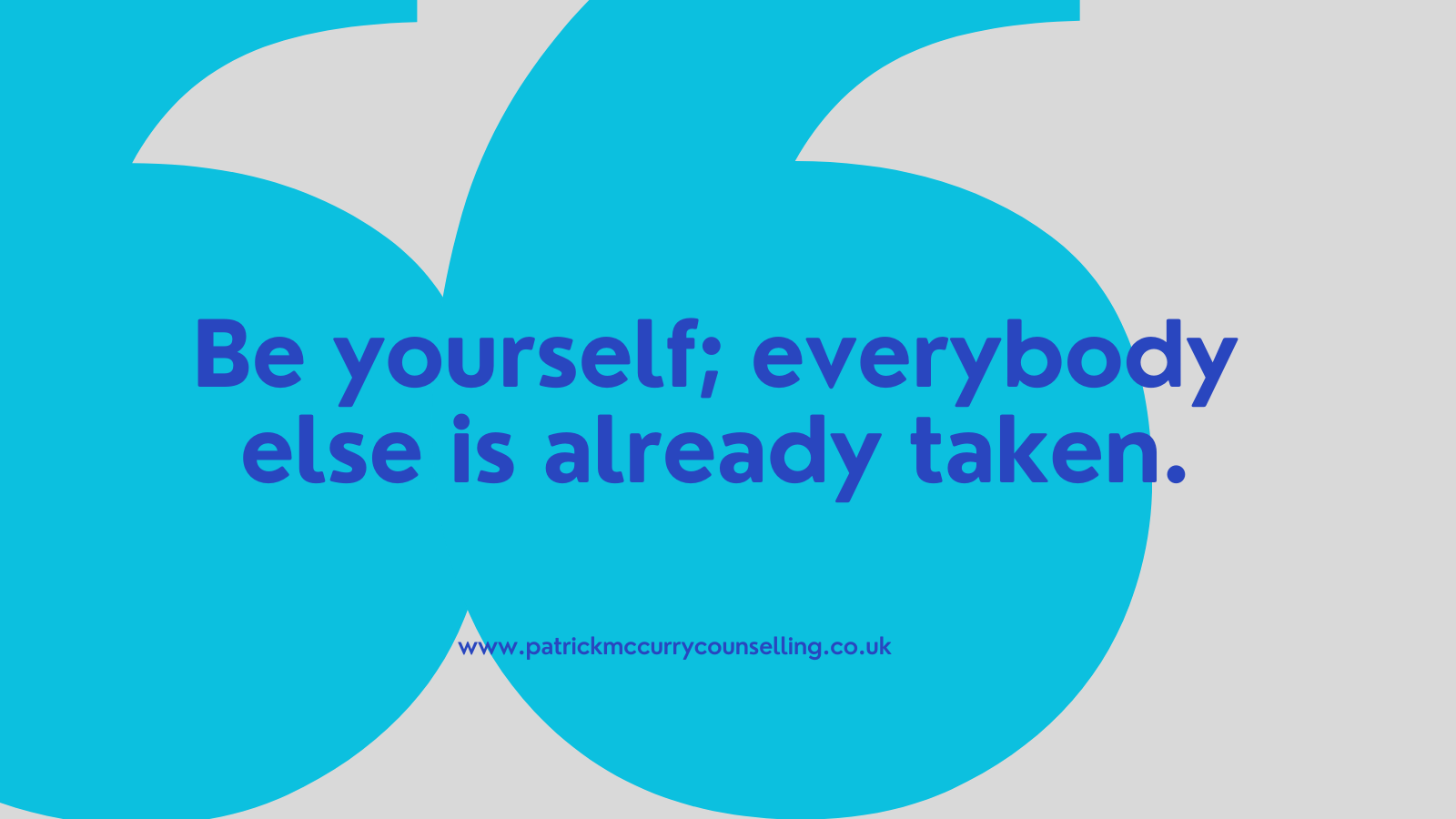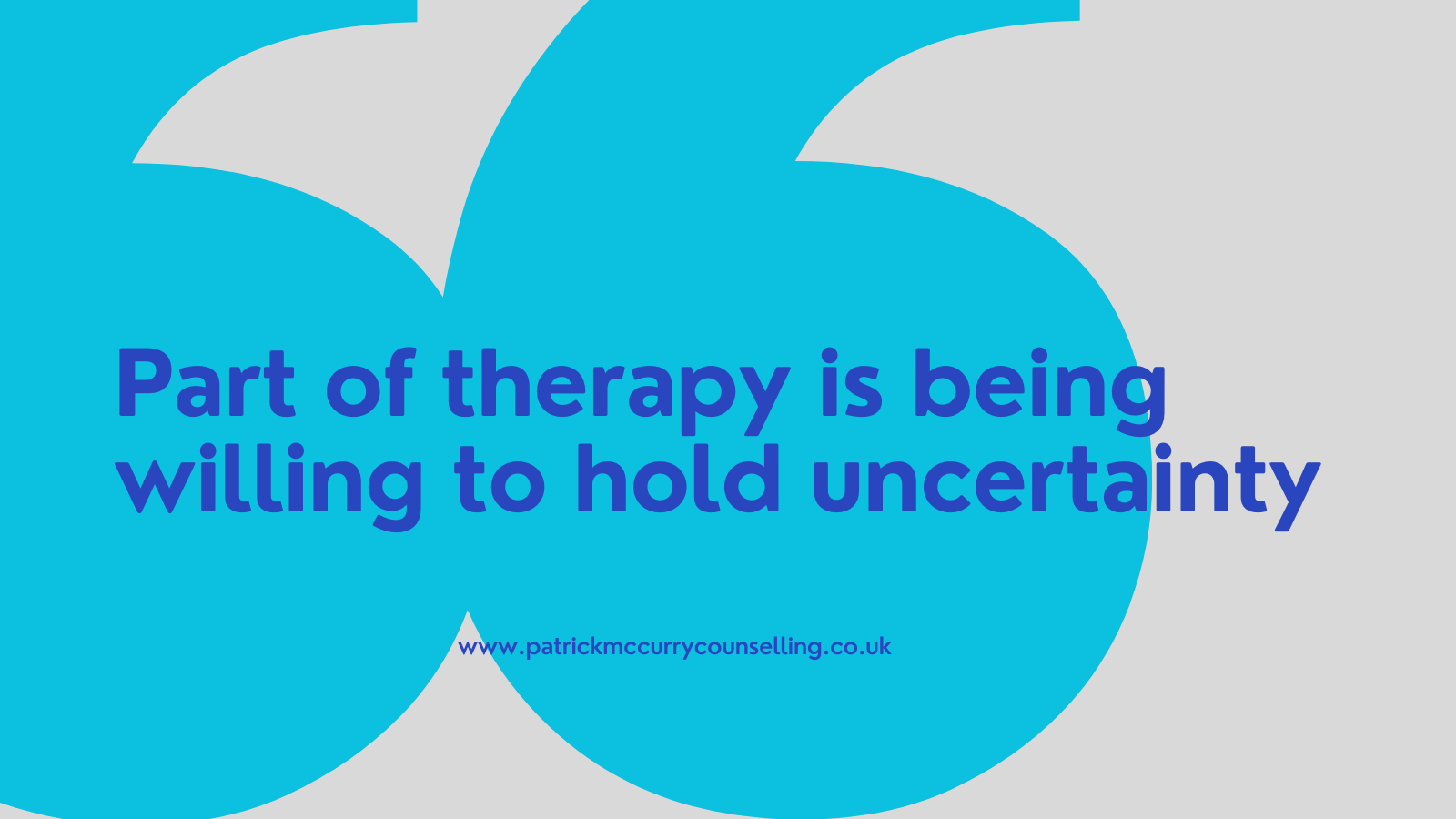Daring to be ourselves
18 July 2023
Authenticity has become a bit of a buzzword in recent years - we are urged to ‘be authentic’. I’m not always quite sure what it means. But I think there’s some truth in the idea that it’s generally better for people to be honest about themselves rather than pretend to be someone other than they are, in order to win approval.
This is one of the themes tackled by film screenwriter Charlie Kaufman in this video. I find a lot of what he says, and the way he expresses himself, inspiring.
When I go to a social event I sometimes feel nervous, especially if there are going to be people there I don’t know. I can worry about what impression I’ll make, will they like me? I assume many people, excepting the extreme extraverts out there, feel like this to one degree or another.
But the temptation for me in these situations is to try and appear different to who I really am - more interesting, smarter, funnier. This temptation comes from our need for validation from others. For more on this, see my blog post on validation.
As Kaufman says (10 minutes, 30 seconds in the video), “The world needs you. It doesn’t need you at a party having read a book on how to appear smart at parties. These books exist, and they’re tempting. But resist falling into that trap. The world needs you at that party, starting real conversatiions, saying ‘I don’t know’. Being kind.”
Kaufman deals with the pressure many of us can feel to hide our vulnerability and appear more sophisticated. He comments on the part of him that wants to be seen as a great speaker, that wants to be liked by the audience.
At 5 minutes, 24 seconds in the video he says: “As much as I know this neediness of mine exists, I also have a hard time extricateing myself from it, or even fully recognising it when it’s happening because it’s a tricky thing, I mean, no-one wants to come up here and bomb,” he tells them.
Opposing desires
He goes on to describe the ‘push-pull’ experience of having opposing desires - the desire to be liked and approved of and also the desire to show more of our true selves, to show our vulnerabilty.
It reminds me of the Oscar Wilde quote: “Be yourself; everybody else is already taken.”

But what if we believe that our ‘true self’ is not very interesting or appealing to others? In that case, surely it makes sense to try and ‘sell’ ourselves as someone more accomplished, more intelligent, more attractive?
I think when this happens it is our inner critic talking - the part of us that judges us as lacking. Dealing with this inner critic can be really tough. After all, for most of us it’s been around in our heads since we were children. (For more on this, see my blog post on the inner critic).
Kaufman’s approach is not to get into an argument with the inner critic - not to say to it, not to try and convincer ourselves that we are interesting. Neither does he recommend just giving in to the inner critic’s judgment and becoming passive and defeated.
Instead, he suggests (11 minutes, 40 seconds in the video) that when we are assailed by these thoughts we simply agree with the critic but not in a defeatist way, rather we ‘take it off the table’. We concede that, yes, maybe I’m not hugely interesting, “But I am the only thing I have to offer, and I want to offer something.”
Being 'interesting'
I like that response of taking the whole issue, of whether or not we are interesting, off the table. It reframes the whole topic - after all, what does it actually mean to be ‘interesting’. There’s a lot of baggage attached to the whole concept and being ‘interesting’ can actually be a stand-in for being superficially knowledgeable or trying to subtly compete with others to be seen in a favourable light.
It is actually when we are willing to say, “I don’t know”, when asked our opinion of a topical subject, that can be the more authentic response. We may be tempted to offer certainty in our opinions or responses, in order to be seen as confident. But sometimes we may not know what we think, or even what we feel about a particular subject. Or we may have conflicting feelings that are difficult to express.
As a therapist I sometimes feel a pressure to ‘know’ what to say to a client, what to advise. This pressure can also be self-generated, again by an internal critical voice saying that I ‘should’ know what is going on and what the solution is. But people’s lives are not that simple.
Part of the therapeutic process is being willing to hold the uncertainty, to accept that we don’t always know what is going on and that that is okay. When we can accept uncertainty it can open up a space for something new to emerge.

I may not always be able to say what is going on for a client, but I can usually have a sense of the psychological terrain we are in. I may also invite the client to see if they can allow an image to appear in their minds of what they are dealing with and then to use crayons and draw the image.
Using creativity, such as visualisations and images, allows us to invite more of our unconscious selves into the therapy. It can help us get away from our ego’s desire to control our environment and the people around us.
Driven by our ego
Much of what Kaufman is talking about in his speech, I think, is about how much of our lives can be driven by our ego’s desire to feel in control and protected. Winning the approval of others can make our ego feel good. But, over time, deeper problems can emerge if our prime motivation is gaining the validation of others and appearing confident and in control.
We may find that, underneath, we feel depressed or flat. We may feel an emptiness.
It’s not that we should condemn that part of ourselves, either, our desire to be liked, to feel in control. Those desires are natural. It is more, I think, that we are conscious of them and also aware that we have other desires that need to be honoured, such as the desire to express what we really feel, what moves us and what makes us feel vulnerable.
When we are able to risk that level of honesty we can help others feel less lonely with their own vulnerabilities. To do this we may need to acknowledge that we are carrying an emotional wound, says Kaufman. This is a wound that is both specific to each of us and common to everyone.
Kaufman says: “It is your secret even from yourself. But it is the thing that wants to live. It is the thing from which your art, your painting, your dance, your composition…is born.”


